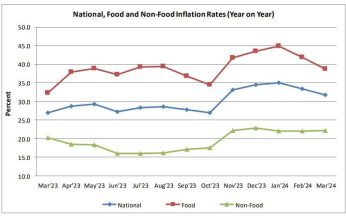Experts recommend formalisation of ZMM-GT
Experts have recommended the formalisation of the Zambia-Malawi-Mozambique Growth Triangle (ZMM-GT) by member States in the participating region.
This is contained in an outcome statement of a two-day review meeting held in Maputo, Mozambique last week to discuss the future for the near defunct initiative.

The meeting observed that the non-binding framework of ZMM-GT had stagnated progress of the initiative, which was operationalised in 2003 to transform the sub-region into a vibrant and dynamic economic growth area through joint ventures and improved infrastructure.
“As a non-binding agreement, it has been difficult to use the 2003 MoU [Memorundum of Understanding] as a basis for mobilising resources from member States, the private sector and development partners.
“Further, the interim status of the ZMM-GT secretariat has hampered the coordination with respect to the implementation of the agreed upon action plans,” reads the outcome statement in part.
The ZMM-GT was initiated by Economic Commission for Africa (ECA) Southern Africa regional office and the United Nations Development Programme in 1999.
The Growth Triangle has its origin in the South East Asian region, where it was conceptualised in the 1980s as a model to promote dynamic development among three or more countries with different endowments of factors of production and different sources of comparative advantage, to form a sub-region of economic growth.
Notwithstanding a 15-year-long existence and conducive conditions in the participating region, the ZMM-GT initiative has made little progress in implementing its projects and achieving its goals.
The Mozambique meeting, which brought together key stakeholders from the participating region, sought to find a way forward for the ZMM-GT specifically and most important, the finalisation and ministerial approval of the MoU.
The key areas included the establishment of the ZMM-GT permanent secretariat and putting in place the systems and mechanisms for mobilising both public and private resources for improving economic infrastructure in the region.
The interim secretariat is currently based in Malawi and whose interim nature has been cited as a challenge in implementing the initiative.
Ministry of Industry and Trade believes the three countries embraced the Growth Triangle concept because it could transform their economies, by collectively and optimally harnessing, from a cross-nation perspective, the resource endowment of the growth triangle area.
The meeting also recommended, among others, the involvement of national private sector forums to own and steer the growth triangle policies and projects within each national context.
The fundamental tenet of a growth triangle is that it is private sector-driven, but with substantial public sector support and commitment.





